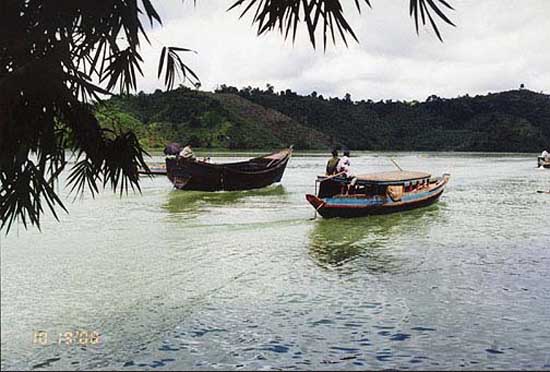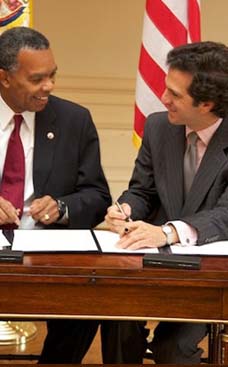
Without the right to work and facing extreme restrictions on engaging in wage-earning activities, the Rohingya are completely dependent on aid, yet this aid is insufficient to meet their basic needs for security, sanitation, public health, primary education, and mental health. Because their displacement in Bangladesh is likely to persist, there must be a more long-term solution. The Rohingya will continue to be dependent on aid, raising costs for Bangladesh and international donors unless there is progress towards integration that allows the Rohingya to engage in legal wage-earning employment or income-generating activities. A durable solution to the displacement of the Rohingya cannot come from Bangladesh alone, though. The US, in particular, should further integrate the Rohingya into their refugee resettlement program. There is an unwarranted distinction made between Burmese refugees and the Rohingya, the latter are resettled in far fewer numbers than other Burmese refugees. In 2008, US resettled 17,000 Burmese refugees, but not until 2009 did US begin to resettle Rohingyas, which were only a few families. Although resettlement cannot be the only solution for the Rohingya, it is a critical factor in seeking a long-term solution to their displacement through the offer of citizenship. Further resettlement of the Rohingya in US would demonstrate the US government's commitment to seeking durable solutions for refugees and provide opportunities for the government of Bangladesh to support refugee integration and programs that promote refugee self-reliance.
Bangladesh RPCV Kristy Crabtree writes: Between the river and the sea
Between the river and the sea
JHORA Khatul crouches on top of a square of bamboo, while curious neighbours, friends, and family swarm into the darkened room to hear her story. At once the room is packed and smoke from the make-shift kitchen fills the open spaces between bodies, until there is barely breathing room. As Jhora begins her story, nods of recognition move through the crowd, no doubt her fellow refugees share the same experiences.
Jhora has been living in this 150 square foot hut in Leda camp with twelve other family members for about forty days. Jhora is an unregistered Rohingya refugee. She fled to Bangladesh after her family's farm was ransacked, their livestock confiscated and her husband tortured. Since then, life in Bangladesh has been "day to day," as she explains, "there is no future to plan." She complains that her husband must seek day labour jobs, but it is never enough and her family often goes to bed fighting hunger pains.
For many Rohingya refugees like Jhora the choice to flee to Bangladesh is a difficult one. Since 1982, the Rohingya have been deprived of citizenship in Myanmar, which means they are not protected by national laws and their basic human rights are severely restricted. In Myanmar, the Rohingya need permission to marry or travel, are prohibited from practicing their Muslim faith, and denied access to public education and health facilities.
Under these dismal conditions the Rohingya are fleeing to countries such as Bangladesh or taking risky, often life-threatening, journeys by boat to Malaysia and Thailand seeking refuge from persecution. Once in these countries of asylum, their options are still restricted because of their status as refugees. One refugee lamented: "We have nothing here in Bangladesh; our needs are not met here. We can't really work or live in Bangladesh, but we also can't return to Myanmar."
As a nation that respects global human rights, there is a need for Bangladesh to protect and provide basic services for the Rohingya refugees. For decades, Bangladesh has been providing limited protection and services to the Rohingya refugees, but opportunities for integration are restricted.
Without the right to work and facing extreme restrictions on engaging in wage-earning activities, the Rohingya are completely dependent on aid, yet this aid is insufficient to meet their basic needs for security, sanitation, public health, primary education, and mental health.
Because their displacement in Bangladesh is likely to persist, there must be a more long-term solution. The Rohingya will continue to be dependent on aid, raising costs for Bangladesh and international donors unless there is progress towards integration that allows the Rohingya to engage in legal wage-earning employment or income-generating activities.
A durable solution to the displacement of the Rohingya cannot come from Bangladesh alone, though. The US, in particular, should further integrate the Rohingya into their refugee resettlement program. There is an unwarranted distinction made between Burmese refugees and the Rohingya, the latter are resettled in far fewer numbers than other Burmese refugees. In 2008, US resettled 17,000 Burmese refugees, but not until 2009 did US begin to resettle Rohingyas, which were only a few families.
Although resettlement cannot be the only solution for the Rohingya, it is a critical factor in seeking a long-term solution to their displacement through the offer of citizenship. Further resettlement of the Rohingya in US would demonstrate the US government's commitment to seeking durable solutions for refugees and provide opportunities for the government of Bangladesh to support refugee integration and programs that promote refugee self-reliance.
The choice between living in a refugee camp or living in Myanmar under a hostile regime is, as one refugee stated, like a choice "between jumping into the river or the sea." The Rohingya have been subject to this dilemma for decades; the choice between languishing inside the confines of a refugee camp, living without documentation or legal protection in a foreign country, or living under a regime that not only refuses to recognise the Rohingya as citizens but systematically persecutes them.
It is a difficult decision for the Rohingya to seek refuge from Myanmar by crossing borders, but Bangladesh and US, as nations that respect human rights, have a duty to protect the persecuted.
Kristy Crabtree, received her M.S. in International Law from New York University, and has conducted field research with the Rohingya refugees in the Kutupalong and Leda refugee camps. She is also a former US Peace Corps Volunteer having lived and worked in Gazipur and Cox's Bazaar.












